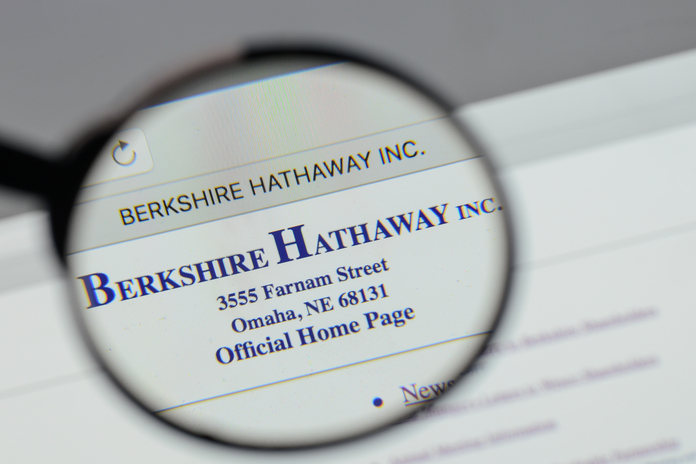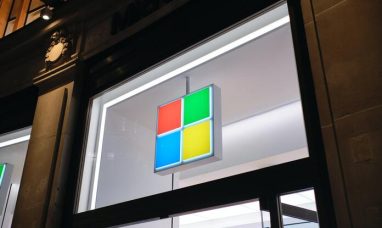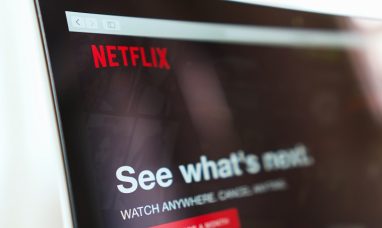Investment Thesis
Investors would be better off choosing high-quality stocks with solid balance sheets that are well-positioned to outperform the market despite the macroeconomic headwinds as high inflation erodes purchasing power and central banks engage in aggressive temporary tightening.
Due to its robust diversification and investments in businesses that will continue to give investors respectable returns on their capital, Berkshire Hathaway Inc. (NYSE:BRK.A), (NYSE:BRK.B) is a financial fortress and makes a substantial investment argument. Most importantly, the company has a track record of outperforming the market during recessions, which supports the strong buy recommendation in the current economic climate.
Although supply-chain issues and inflation threats remain, Berkshire Hathaway’s diversified business units help the company maintain long-term profits. Throughout Q1 2022, the company mostly remained robust. Despite the macroeconomic challenges, the conglomerate’s operating earnings continued to be close to records.
Comparing the most recent quarter to a year ago, operating earnings were around $7 billion. Earnings increased across the board, except for Insurance, which suffered from Geico’s negative impact on the industry. During the quarter, earnings from the Manufacturing, Service, and Retail segments considerably climbed by 15.5%, offsetting the majority of the decline from the Insurance sector.
CEO Warren Buffett is more inclined to invest money despite abiding by long-term standards in light of significantly higher inflation. Despite a slowdown in share repurchases in Q1, the corporation invested far more in acquisitions and stocks in 2022 than it did in the previous two years. One of the main complaints of investors over the last few years has been Berkshire’s underinvestment.
At the end of 2021, the business held $146.7 billion in cash and short-term investments, of which $120 billion was held in U.S. Treasury bills, which provided investors with a negligible return due to the low-interest rate environment. Buffett also complained in a letter to investors about the market’s dearth of promising investment prospects at the beginning of the year.
The story, however, altered in Q1 2022 as the company aggressively began capital deployment amid worries about increasing inflation and the risk-off atmosphere. In the first quarter, Berkshire bought nearly $41.4 billion worth of stocks, including about $21 billion worth of Chevron (CVX) shares. In addition, when share repurchases decreased to $3.2 billion, the business added multiple new multibillion-dollar equity investments.
As a result, the cash and short-term position decreased from $146.7 billion at the end of Q4 2021 to $106.3 billion at the end of the current quarter. Unsurprisingly, the company was a $4 billion net seller during the high valuation environment in 2020–2021. Still, the current increase in equity purchases indicates the firm’s opinion of the present valuations and its bullish outlook on the energy industry.
Bullish for Energy Stock
In Q1 2022, Berkshire increased its stake in Chevron Corporation from 38.2 million to 159 million shares. One of the best-performing equities this year has been the energy play, which has increased by about 25% since oil prices have remained high due to supply shortages. The business also sold AbbVie, Bristol-Myers, and Royalty, and it increased its exposure to the oil industry by buying roughly $27 billion’s worth of Chevron and Occidental Petroleum (OXY) shares this year.
Unsurprisingly, the conglomerate added another 4.3 million shares in OXY earlier this month, bringing its total ownership down to over 20% and igniting takeover rumors. As a result, Berkshire Hathaway’s nearly 20% stake in OXY reflects Buffett’s bullish outlook on the energy industry. Furthermore, there is widespread speculation that Buffett plans to acquire the company and use it as a “cash machine” for his other investments, similar to what he did with BNSF railroads in 2009.
Occidental recovered from its financial difficulties after taking on debt to buy Anadarko Petroleum for $35.7 billion just before COVID-19 broke out and decimated oil demand. Debt repayment and interest payments have accelerated due to a recovery in oil demand to peak levels. Additionally, the 20% interest will enable Berkshire Hathaway to record its part of OXY’s profits using “equity accounting,” increasing Berkshire Hathaway’s earnings. Refinitiv predicted Occidental’s cash flow to rise to $19.36 billion this year from $3.84 billion two years ago.
A Merger Arbitrage Deal with Activision
Activision Blizzard, Inc. (ATVI) currently has a 64.3 million share stake from 14.7 million shares at the end of 2021, giving Berkshire Hathaway a 9.5% ownership. Microsoft revealed earlier in January that it would buy ATVI in a $68.7 billion deal shortly following Buffet’s purchase. Even though Activision’s stockholders approved the acquisition, there is still some doubt surrounding the agreement because the FTC is looking into it for possible antitrust violations.
The regulator is looking into Microsoft’s handling of customer data, the working conditions for game creators, and the effect of the acquisition on competition between gaming platforms as part of its antitrust inquiry. Amid worries about the FTC investigation, Activision’s stock is trading 16% below Microsoft’s offer of $95 a share. Buffet’s upbeat opinion of the merger is reflected in Berkshire’s aggressive acquisition of Activision shares, which is a merger arbitrage play.
Nearly Recession-Proof: Berkshire
The corporation has outperformed the S&P 500 during U.S. recessions, according to a quick examination of Berkshire’s performance during those times. The company lost during the 2008 financial crisis and the recent two-month recession that followed the COVID-19 outbreak. Still, generally, the stock price return of the company has dramatically outpaced the market during the recessionary periods.
Examining the company’s operational results to assess Berkshire Hathaway’s situation during a bear market accurately is crucial. This is far more important because these results are a more authentic representation of Berkshire Hathaway’s material value than its market-based value based on short-term price fluctuations.
Strong diversification is unquestionably one of Berkshire’s advantages. However, industrial, service and retail businesses are generally more susceptible to an economic downturn, potential supply chain disruptions, and inflation. However, Berkshire Hathaway has outperformed the market due to its investments in businesses whose operations are primarily unaffected by negative macroeconomic trends.
In contrast to the S&P’s 16.1% decline, The Coca-Cola Company (K.O.), Berkshire maintains a 9.2% investment and is up 6.3% YTD. Because of this, analysts predict that the company’s top and bottom lines will rise by 8.1% and 6.5%, respectively, during the current year, despite the turbulent macro-economic environment. The company is a consumer staples stock with a high brand value, so it is effectively immune to changes in economic cycles. As a result, the company has been able to pay out rising dividends for the past sixty years, reflecting the corporation’s firm foundation.
In addition, despite supply-chain difficulties, Berkshire Hathaway’s operating profitability should be firm and increase this year as most margins fared well in Q1. Despite the economy, the insurance and energy industries have proven robust, and discretionary units have been doing well.
The P&C reinsurance business, its central sector, and its utilities and energy companies are more likely to survive a regular economic downturn. Even while BNSF might see a few minor downturns, the corporation is less vulnerable than the economy as a whole.
Low Value Historically
Lastly, despite the recession fears that have already driven investors to safer quality companies, Berkshire Hathaway is still cheap from a valuation standpoint. The Price to Book value (P/B) ratio continues to be the primary predictor of Berkshire Hathaway’s intrinsic value, notwithstanding Buffet’s advice to investors not to concentrate only on the book value per share. However, the P/B is still below its long-term average of 1.40, which I believe is a more accurate picture of Berkshire Hathaway’s value. The conglomerate has consistently shown sufficient growth in book value per share.
Conclusion
I am adamant that Berkshire Hathaway is a company to hold for the long term, especially during the recession. Its high-quality holdings, broad diversification, and low-risk profile provide downside protection. Finally, as more investors come to appreciate Berkshire’s quality and worth due to the uncertain times that lie ahead, the company’s P/B valuation will progressively approach the 1.5x mark.
Featured Image: Megapixl © Casimirokt















